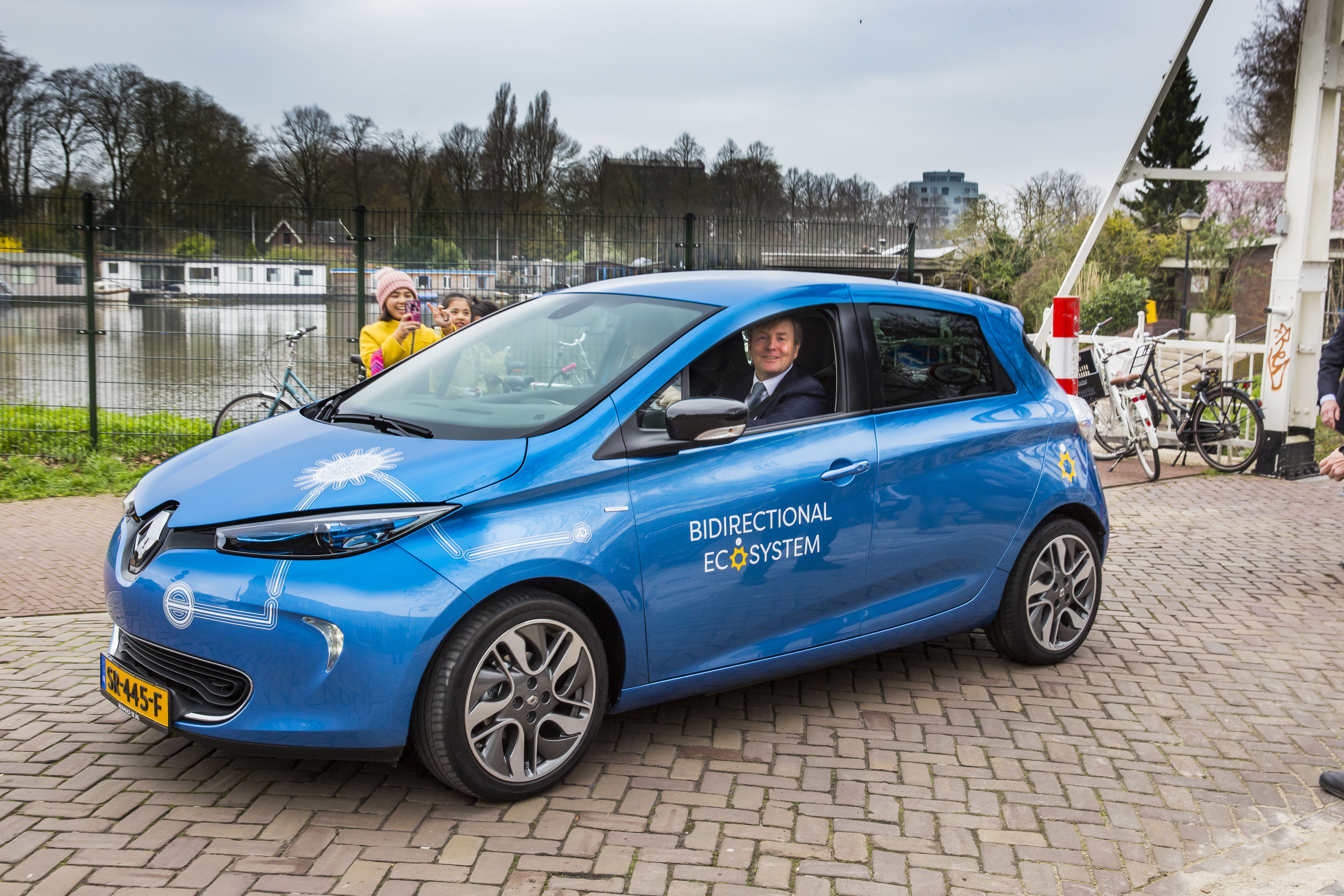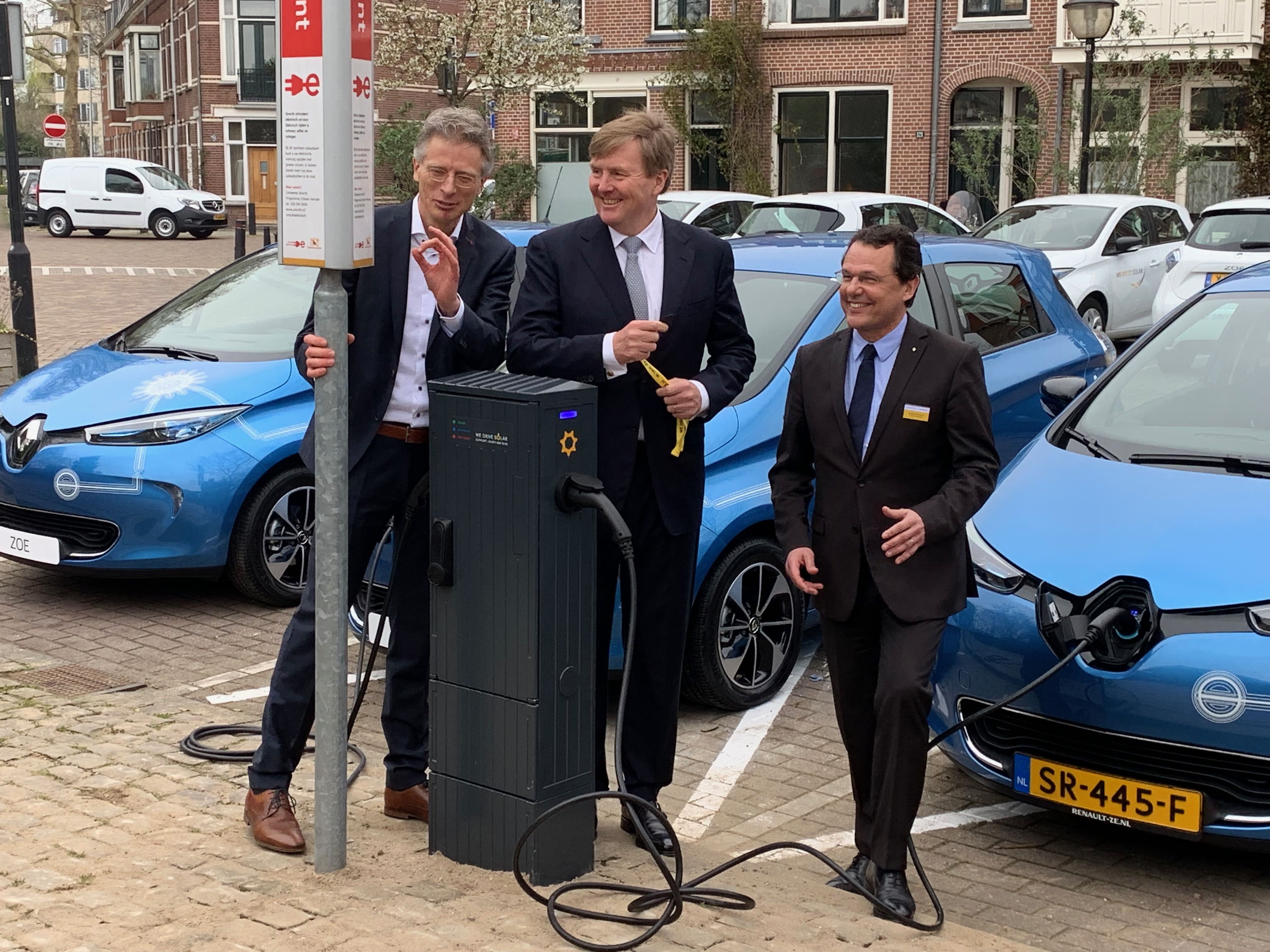Will Utrecht become the world's first bidirectional city?
Utrecht pioneers large-scale bidirectional charging with 10,000 cars, reducing grid congestion. We Drive Solar leads this initiative, letting residents experience a 'mobile neighborhood battery'.
This article is brought to you by our Silver Partner, WE DRIVE SOLAR.

Utrecht is the first region in the world to have the opportunity to use bidirectional charging technology on a large scale. 10,000 cars have approximately 100 megawatts of flexible power, which can prevent the worst grid congestion in the Utrecht region. We Drive Solar is working with car-sharing provider MyWheels to make this happen. This means that residents of Utrecht are the first in the Netherlands to have the opportunity to experience on a large scale what a 'mobile neighborhood battery' can mean.
"In the Netherlands, we are striving for an energy system based on solar and wind energy. This requires not only seasonal storage but also short-term storage to absorb peaks on the electricity grid. In addition to installing batteries, you can also use car batteries," explains Robin Berg, founder and director of We Drive Solar. Although batteries in electric cars (EVs) are increasingly being used smartly, Berg believes this can be done even smarter.
Currently, 80 to 90 percent of batteries worldwide are used for EVs, and these are increasingly being used as batteries under the guise of 'smart charging'. This involves charging the battery in the car when energy is cheap. We Drive Solar wants to further improve this concept by using EV batteries bidirectionally. This means that power from EVs can be fed back into the grid, allowing cars to make an even greater contribution to the energy transition.
"This has three important advantages: shared cars can be offered at an affordable price, the grid operator gets help in reducing grid congestion, and we accelerate the energy transition by storing peaks for later use, allowing more sustainable energy to be generated," says Berg.
The state of affairs
"We have conducted pilots with various car companies such as Nissan, Hyundai and Renault to investigate how the technology works and what standards are needed. These standards are now available and we produce charging stations with full support for bidirectional charging. We are also seeing car manufacturers launch production cars that support this technology. We expect the first large-scale rollout of bidirectional cars early next year,” says Berg.
The next step is for bidirectional charging to become the standard, which will take another two to three years. In addition, car manufacturers must meet the requirements of the grid operator, and these requirements are not uniform in Europe,” says Berg.
Although it is a challenge, bidirectional charging is also immediately attractive to the consumer. “With smart charging, you can more than halve charging costs. With bidirectional charging, charging your car becomes free and you can even earn money with it,” says Berg.
MyWheels
Berg explains: “Car manufacturers such as Kia and Renault have cars on the market this year that can deliver back to the home, the so-called vehicle-to-home technology. We Drive Solar wants to further expand this technology together with MyWheels by using the cars in the public domain, called station-based roundtrip car sharing. In this, shared cars are linked to their own charging station. The cars thus have their own control and energy contract, and you know when the car is reserved for the next trip, so that you can optimally use the battery for the energy transition.”
This concept is currently being rolled out in Utrecht, where the first 400 electric shared cars are already in use with smart charging activated and soon will support bidirectional charging. In the future, MyWheels wants to make all of its 2,000 electric shared cars bidirectional and reduce grid congestion in cities.
Utrecht aims to become the first bidirectional city and region in the world. “There is room for around 1,000 shared cars in Utrecht. Propositions must therefore also be developed for companies and households, so that everyone can purchase or lease a bidirectional car,” Berg concludes.
By Anne Agterbos published on Solar365
In the same category
- A Smart Battery Management System for Electric Vehicles Using Deep Learning-Based Sensor Fault Detection
- Autel Energy Europe at AEC 2024: Pioneering the Future of Ultra-Fast EV Charging
- Baden-Württemberg International: Your partner for a successful expansion
- Business Region Goteborg : Gothenburg - Pioneering tomorrow's mobility
- Charging Electric Vehicles Today and in the Future
- Comparative Study of Permanent Magnet, Conventional, and Advanced Induction Machines for Traction Applications
- Design Methodology and Circuit Analysis of Wireless Power Transfer Systems Applied to Electric Vehicles Wireless Chargers
- Designing High-Power-Density Electric Motors for Electric Vehicles with Advanced Magnetic Materials
- Energy and Environmental National Assessment of Alternative Fuel Buses in Morocco
- Energy Management and Optimization of Large-Scale Electric Vehicle Charging on the Grid
- Fuel Cell Hybrid Electric Vehicles: A Review of Topologies and Energy Management Strategies
- Numerical Simulation of Cooling Plate Using K-Epsilon Turbulence Model to Cool Down Large-Sized Graphite/LiFePO4 Battery at High C-Rates
- Using an Intelligent Control Method for Electric Vehicle Charging in Microgrids
- Will Utrecht become the world's first bidirectional city?
